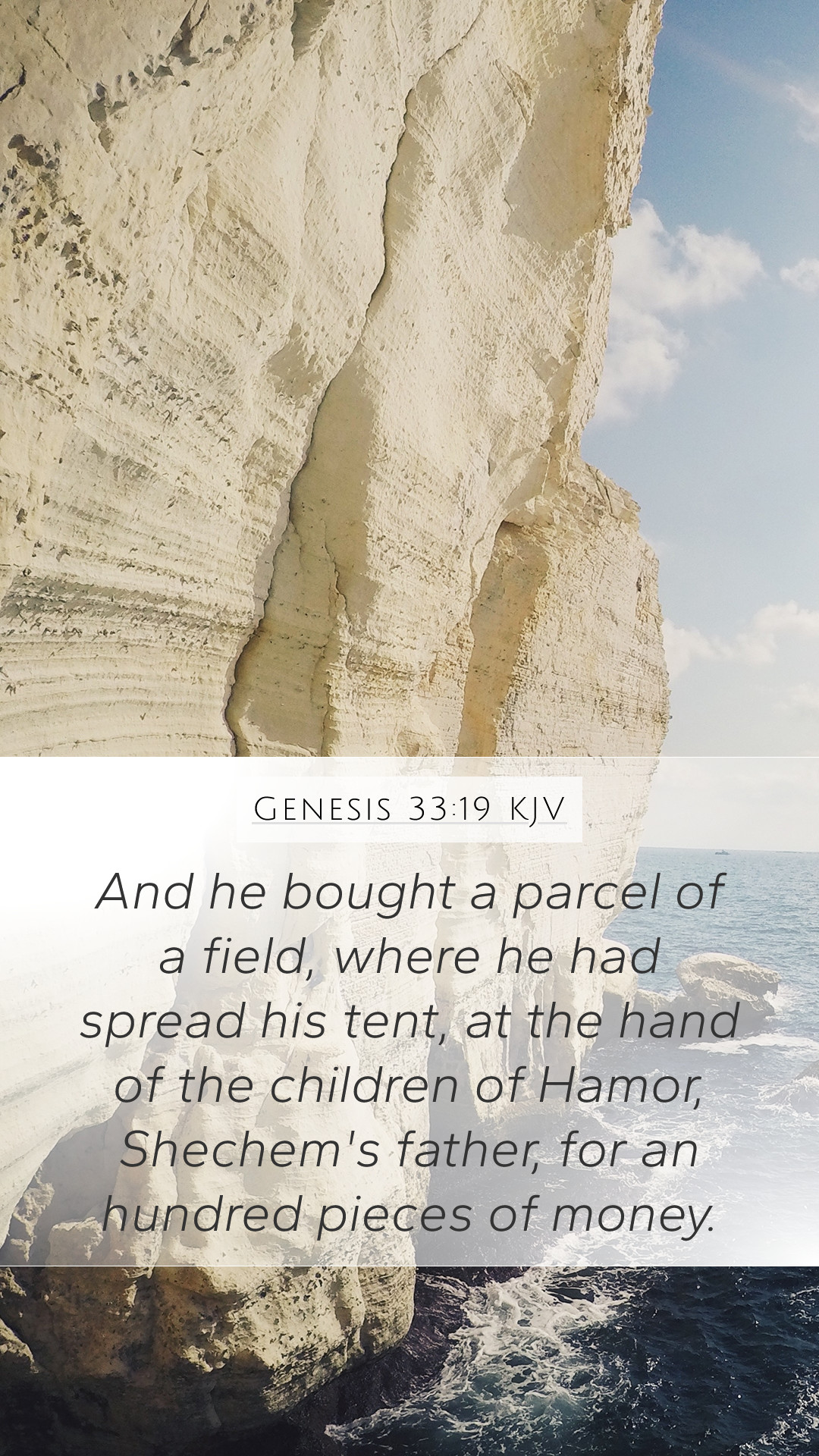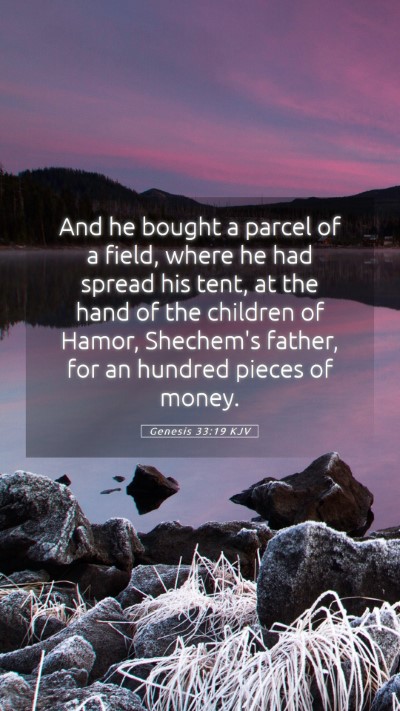Understanding Genesis 33:19
Genesis 33:19 states: "And he bought a parcel of a field, where he had spread his tent, at the hand of the children of Hamor, Shechem's father, for an hundred pieces of money." This verse marks a significant moment in Jacob's journey as it highlights his settling in the land of Canaan and establishes his ownership.
Bible Verse Meanings
This verse indicates a transformation in Jacob's life after his return from Haran. It shows a deliberate act of establishing his presence in Canaan, a land promised to him and his descendants by God. By purchasing land, Jacob acknowledges God's promises and lays down roots for his family.
Contextual Analysis
The purchase occurs shortly after Jacob reconciles with his brother Esau, demonstrating his intention to live peacefully and securely in a land fraught with historical tensions. Jacob's choice to buy land from Hamor's family signifies a commitment to integrate into the community of Shechem rather than living as a transient wanderer.
Bible Verse Interpretations
- Matthew Henry's Commentary: Henry emphasizes the faith Jacob displayed by purchasing land in Canaan, a sign that he believed in God’s promise. Despite past grievances, he seeks to establish his legacy in a land meant for his offspring.
- Albert Barnes' Commentary: Barnes points out that the purchase signifies peace with the Canaanites and illustrates the unfolding plan of God. Jacob is taking pragmatic steps to ensure security for his family, thus demonstrating prudence and foresight.
- Adam Clarke's Commentary: Clarke highlights that this act represents a spiritual investment, as land ownership in Canaan was tied to God’s covenant. Clarke also suggests the monetary value indicates Jacob’s growing wealth and stability.
Applications of Genesis 33:19
This passage offers several lessons for contemporary readers:
- Faith in God’s Promises: Jacob’s action reminds believers to trust in God’s situation and establish themselves on His promises, despite past fears or conflicts.
- Seeking Peaceful Relations: Jacob’s reconciliation with Esau prepares him for harmonious living among Canaanites, teaching the importance of resolving conflicts.
- Planning for the Future: Just as Jacob planned for his family by purchasing land, modern readers are encouraged to consider their responsibilities and future generations.
Historical Context of the Verse
Jacob's purchase of land is situated in a broader narrative concerning the patriarchs, their covenants with God, and the development of Israel. This act of buying land is not just about property, but part of God's overarching plan for His people in the land of Canaan.
Related Bible Cross References
- Genesis 12:7: God's promise of land to Abraham and his descendants.
- Genesis 28:13-14: God's reaffirmation of the promise to Jacob.
- Genesis 34:1-31: The events following Jacob's purchase, which involve his daughter Dinah and emphasize the challenges of living in Canaan.
Conclusion
Genesis 33:19 encapsulates Jacob's journey toward establishing himself in a land promised by God. This verse serves as a pivot, marking a transition from a life of nomadic wandering to a new chapter of home and settlement. Understanding this verse requires an appreciation of its historical and theological contexts, underscoring the importance of faith, relationships, and planning in the believer’s life.
In summary, Genesis 33:19 is a profound verse with rich theological context, demonstrating how purchasing land signifies much more than an economic transaction, but rather, a holistic commitment to the promises and destinies as laid out by God.


